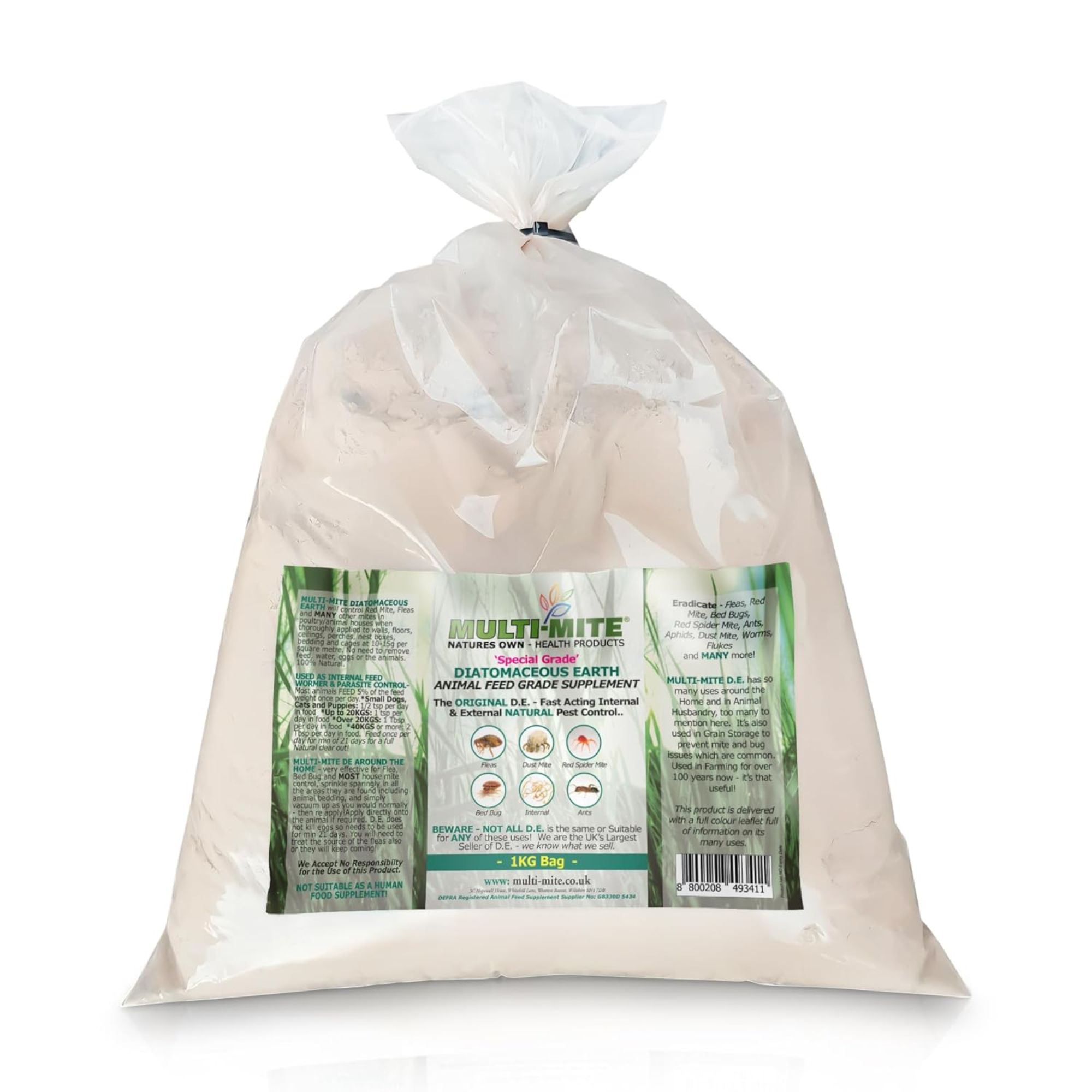How to stop snails eating plants naturally – 8 foolproof methods, as recommended by gardening experts
These are the most effective ways to keep snails at bay

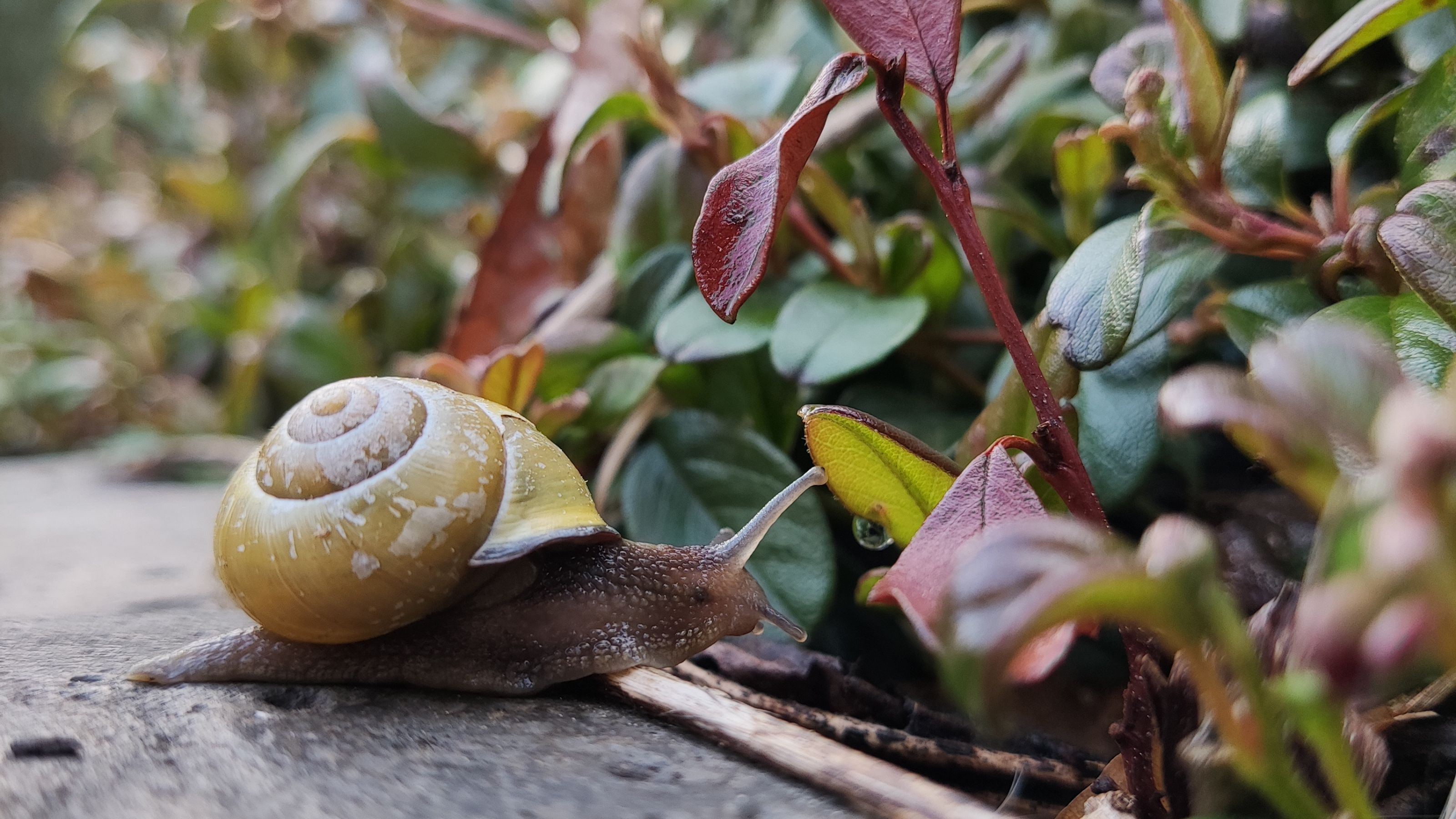
Knowing how to stop snails from eating plants is one of the biggest concerns among gardeners – but knowing how to do so naturally without subjecting your plants to a number of harsh chemicals is another thing. Thankfully, there are many natural alternatives to keep snails from eating your plants once and for all.
If you've previously dealt with having to get rid of slugs, then you'll likely see a lot of similarities to keeping snails away from your plants and produce. We've learned of many natural methods to keep these pests away from your carefully crafted flowerbeds, including using coffee grounds and eggshells in the garden to create a barrier that prevents them from trespassing.
So, if you want to learn how to utilise these natural methods as well as stock up on a few more to stop snails from eating your plants, we've got the best expert-recommended ways coming up.
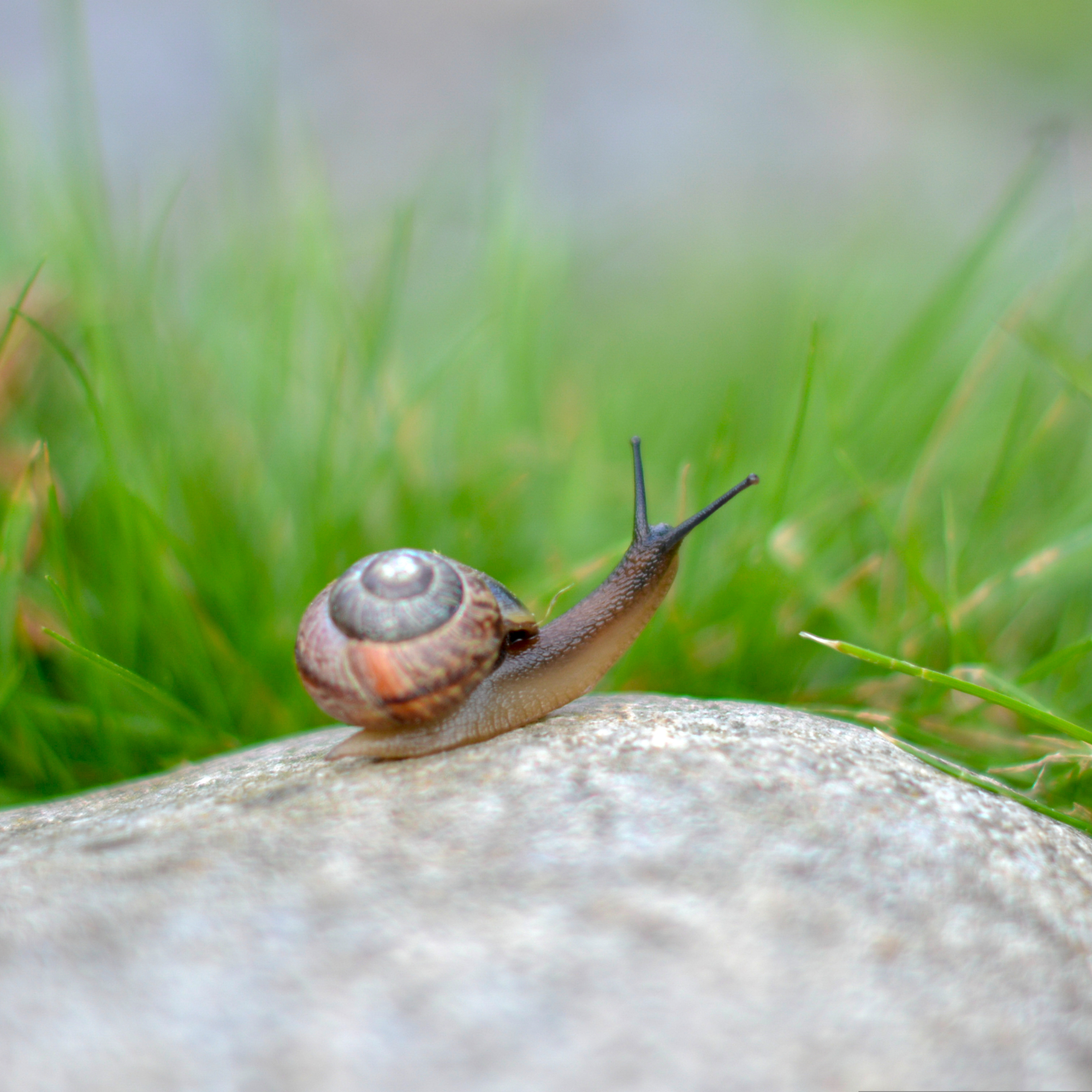
How to stop snails eating plants naturally
'It's natural for snails to find gardening produce delicious and chew through it. Gardeners are usually able to recognise them by the silver trail they leave behind and ragged holes in the leaves of plants,' begins Petar Ivanov, Fantastic Gardeners' gardening and plant expert.
It's important to preface that snails are a valuable part of a healthy ecosystem, and can be very helpful in a garden as, for example, they can help turn plant waste into compost. Therefore, this isn't about trying to get rid of them completely per se, but rather keeping them under control and away from your prized plants and produce.
'Because of these reasons, simply controlling the population of snails in a garden in a natural way can be a lot more beneficial for the biodiversity and health of your garden,' says Petar.
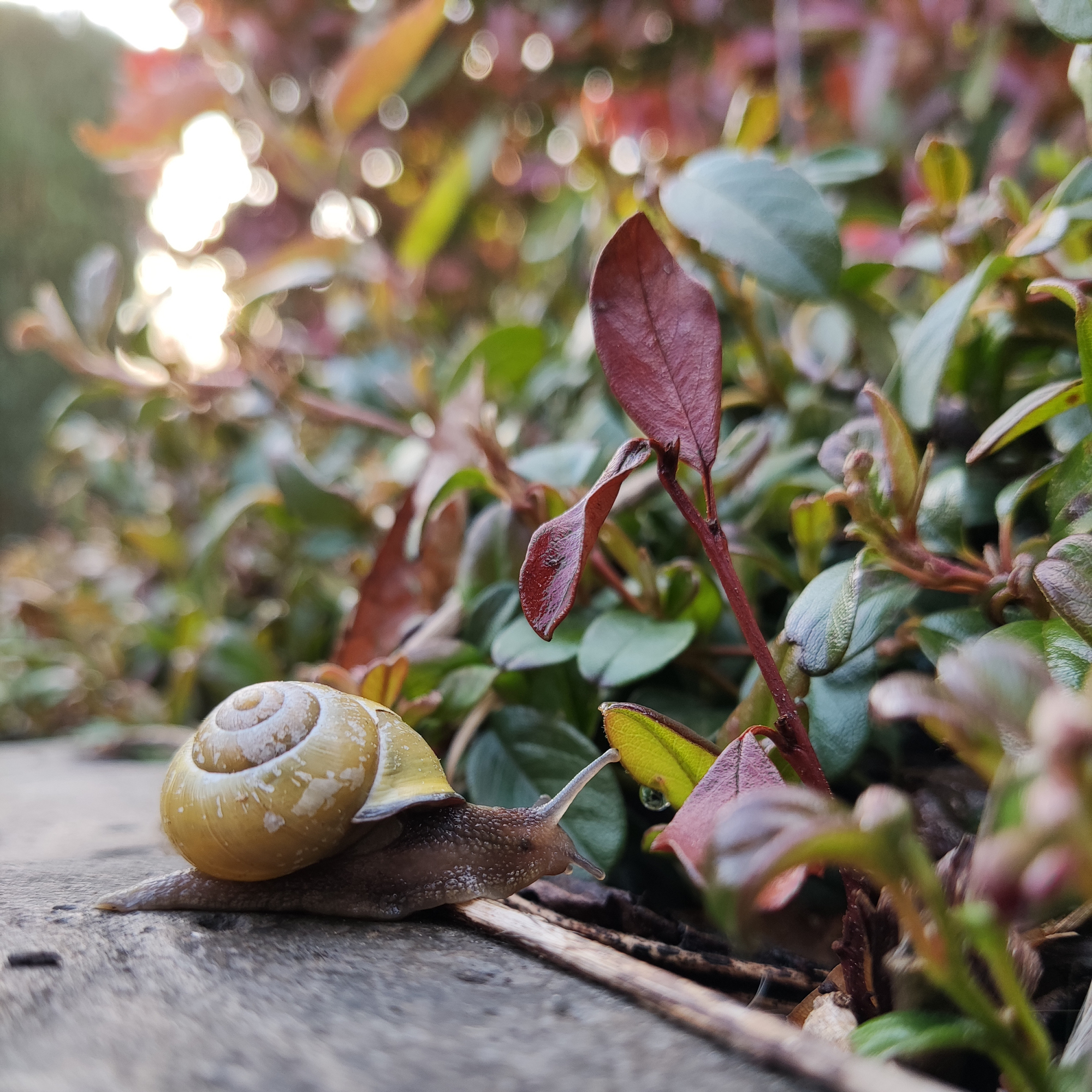
1. Create physical barriers
One of the simplest ways to deter snails from eating your plants is by creating a physical barrier. Petar suggests doing this by using copper tape or diatomaceous earth around the plants. We've previously seen the effectiveness of slug tape for a similar purpose, so rest assured the same can be said for snails.
Sign up to our newsletter for style inspiration, real homes, project and garden advice and shopping know-how
One thing to note about diatomaceous earth, however, is that it will need to be applied to your soil often as rain will stop it from working.
2. Adding texture to your garden
Similar to creating physical barriers, adding texture to your garden is another foolproof method to stop snails from eating plants naturally.
'Aggregate materials such as gravel, sharp sand, bark, and wood chips can create a barrier to deter snails. This is because they find it difficult to travel across the irregular, shape surfaces that these materials can create,' explains Craig Morley, gardening expert at Budget Seeds.
So, now might be the time to consider gravel garden ideas if you're dealing with an army of snails at hand.
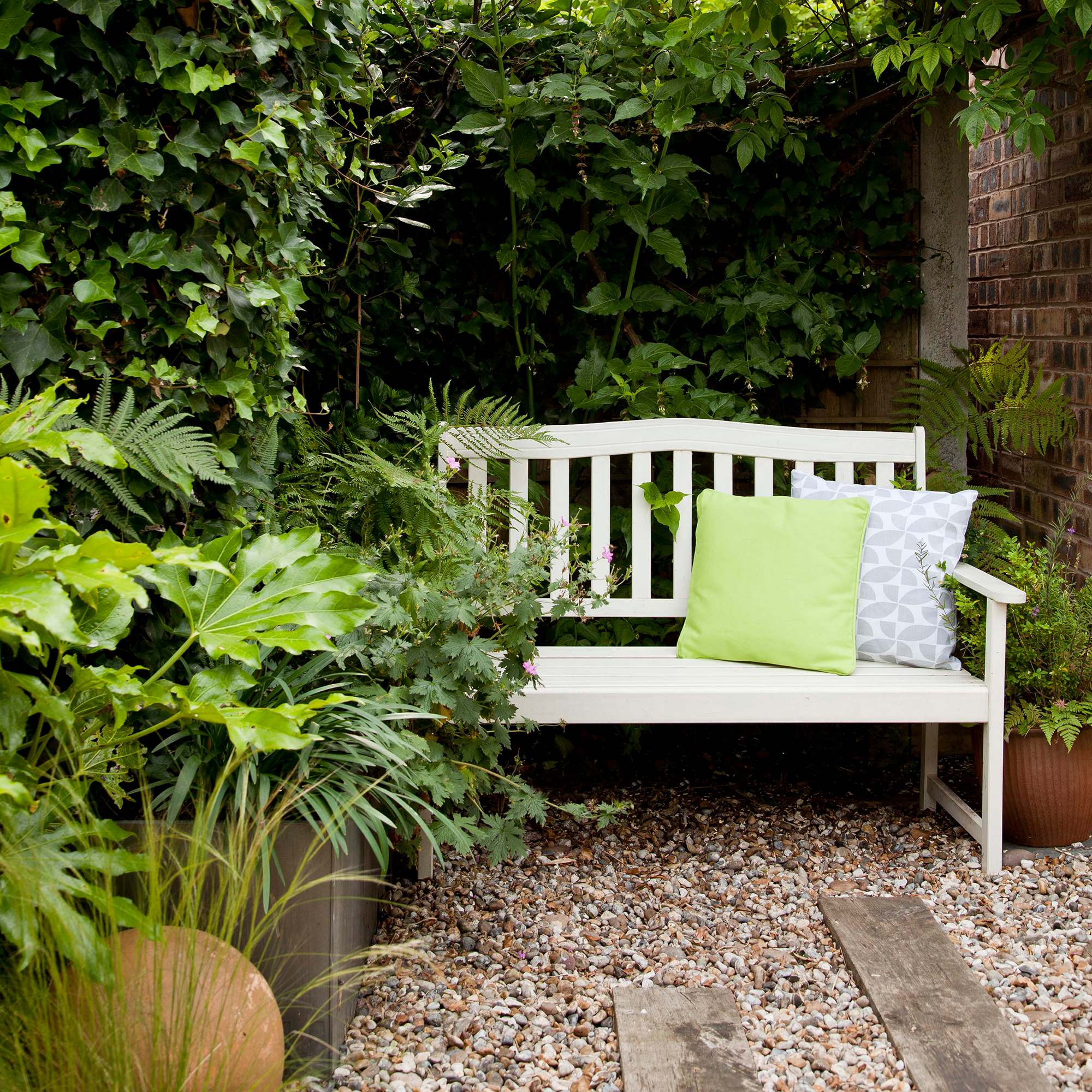
3. Using eggshells and coffee grounds
We mentioned this earlier but, yes, eggshells and coffee grounds are effective in stopping nails from eating plants naturally. If you find you don't know what to do with leftover coffee grounds and eggshells, using them as a natural snail deterrent works a charm.
'Snails hate coffee, so sprinkling some around your plants is a great way to create a barrier which will keep snails out,' explains Chris Bonnett, founder of Gardening Express. 'Coffee grounds are also great to add to your soil, providing it with some great nutrients.'
Similarly, using eggshells is another great trick. 'Their sharp edges are what prevent snails from crawling over them and making their way to your plants,' adds Chris. Simply place crushed eggshells around your plants of choice.
'Eventually, the eggshells will break down and become part of your soil and just like coffee, they can add some beneficial nutrients.'
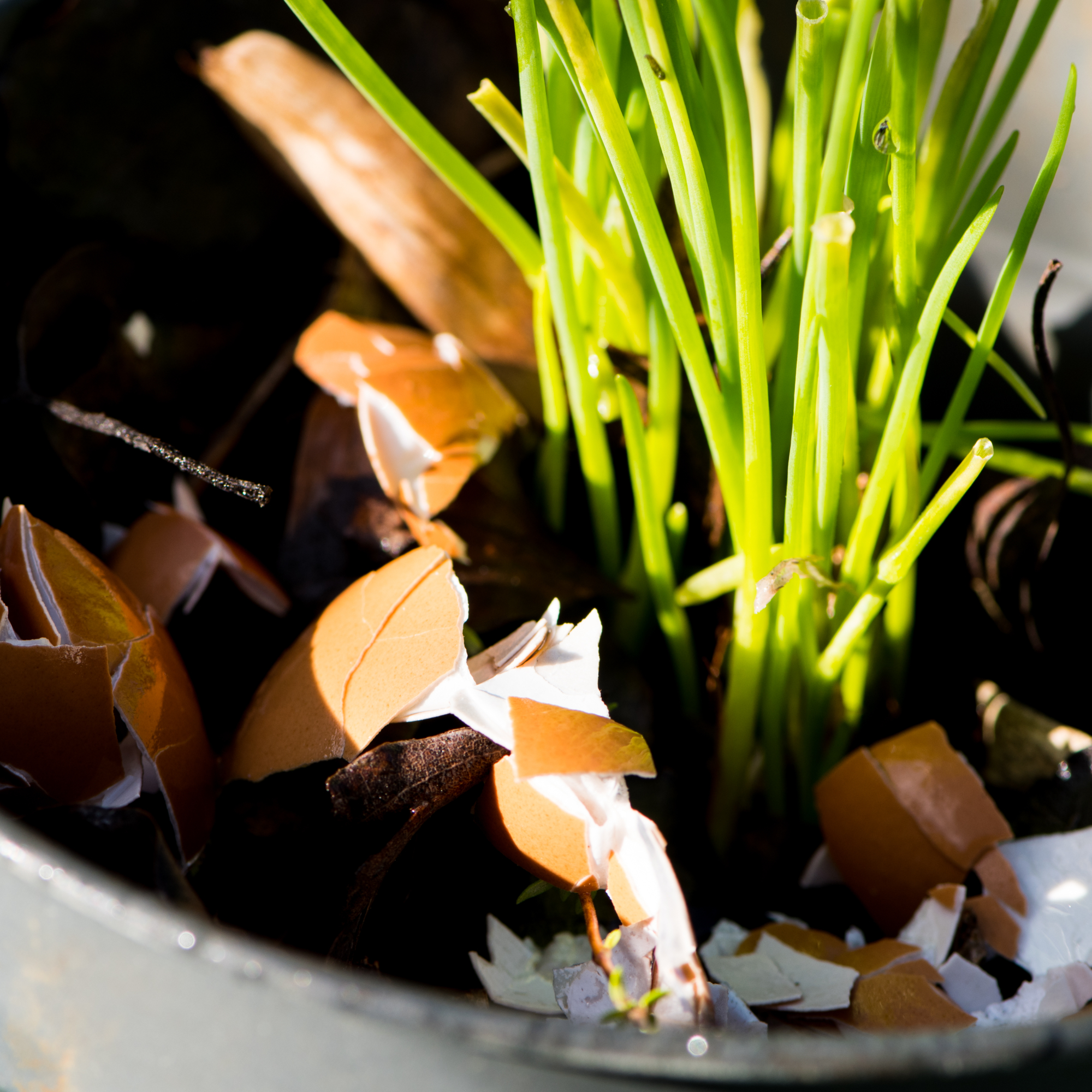
4. Encourage natural predators
Aside from the likes of creating barriers, you can also consider making your garden more wildlife-friendly and making it a more beneficial environment for predators of snails, such as birds and frogs. You can do this by providing them with things like bird feeders, bird baths, and small ponds.
'Encouraging these predators to visit your garden will not only keep the snail population under control they will also greatly enhance the health of your garden,' assures Petar.
If you're having difficulties with addition pests in your garden, such as maybe trying to get rid of leatherjackets at the same time as the snails, then you might want to make this solution your first port of call.

5. Plant herbs
A natural pest control that is often overlooked is growing repellent plants, also known as compassion planting. 'You can use herbs that snails don't like and plant them around the plants you want to protect to create a natural fence,' suggests Petar.
Some examples of herbs that can deter snails include mint, lavender, rosemary, sage, thyme, and parsley. So, instead of keeping your herb garden strictly to one area, it might be worth spreading some of these goodies around to stop snails from eating your plants.
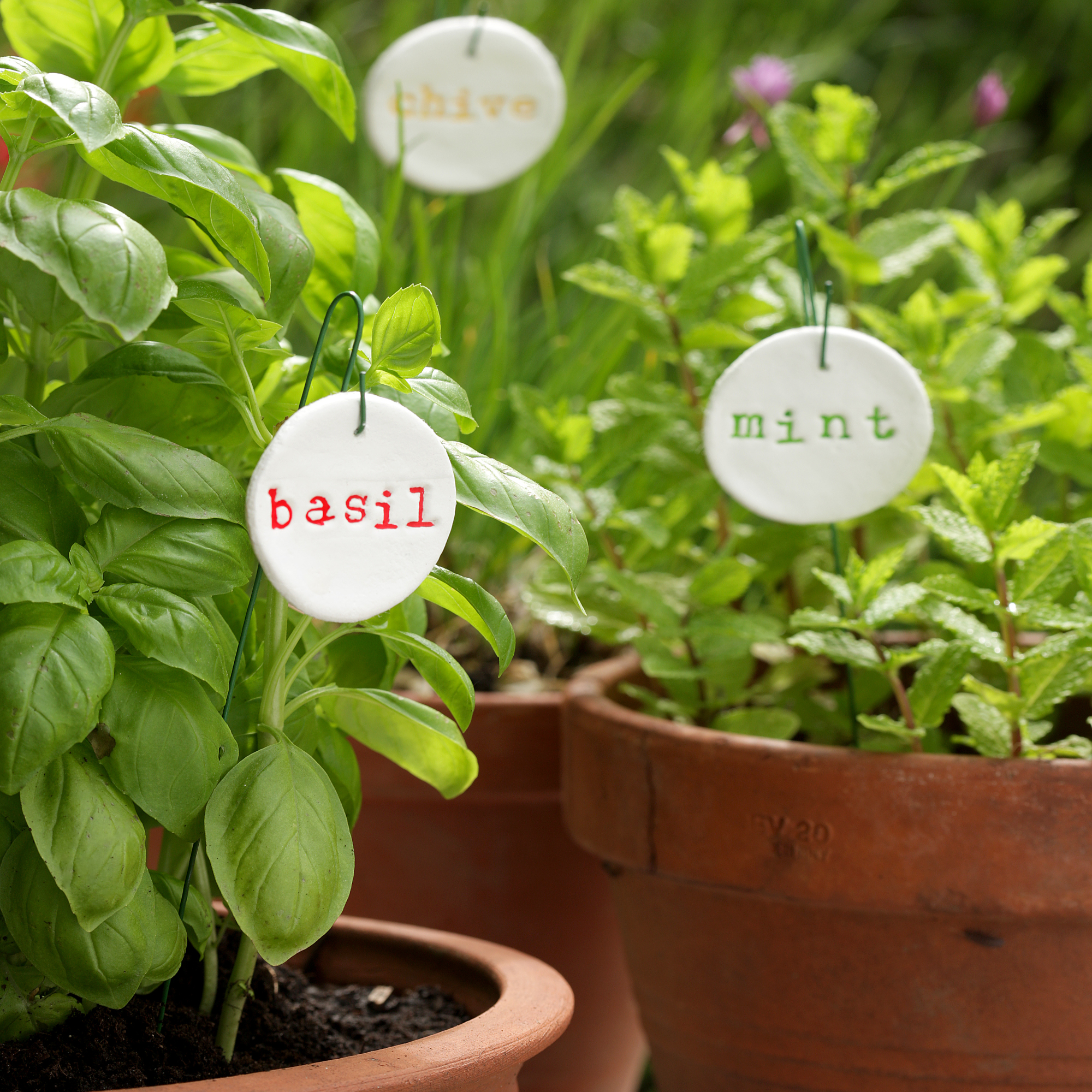
6. Utilise sacrificial plants
Sticking with the theme of planting, another way to stop snails from eating your plants is to divert their attention to another (more undesirable) plant in your garden. In fact, this is called crop trapping.
'Planting sacrificial or trap plants will lure pests like snails elsewhere in your garden so that they will eat these instead of your other plants. For example, planting lettuce in a hidden spot can help to protect ornamental bedding plants, as the snails are more likely to eat the lettuce,' advises Craig.
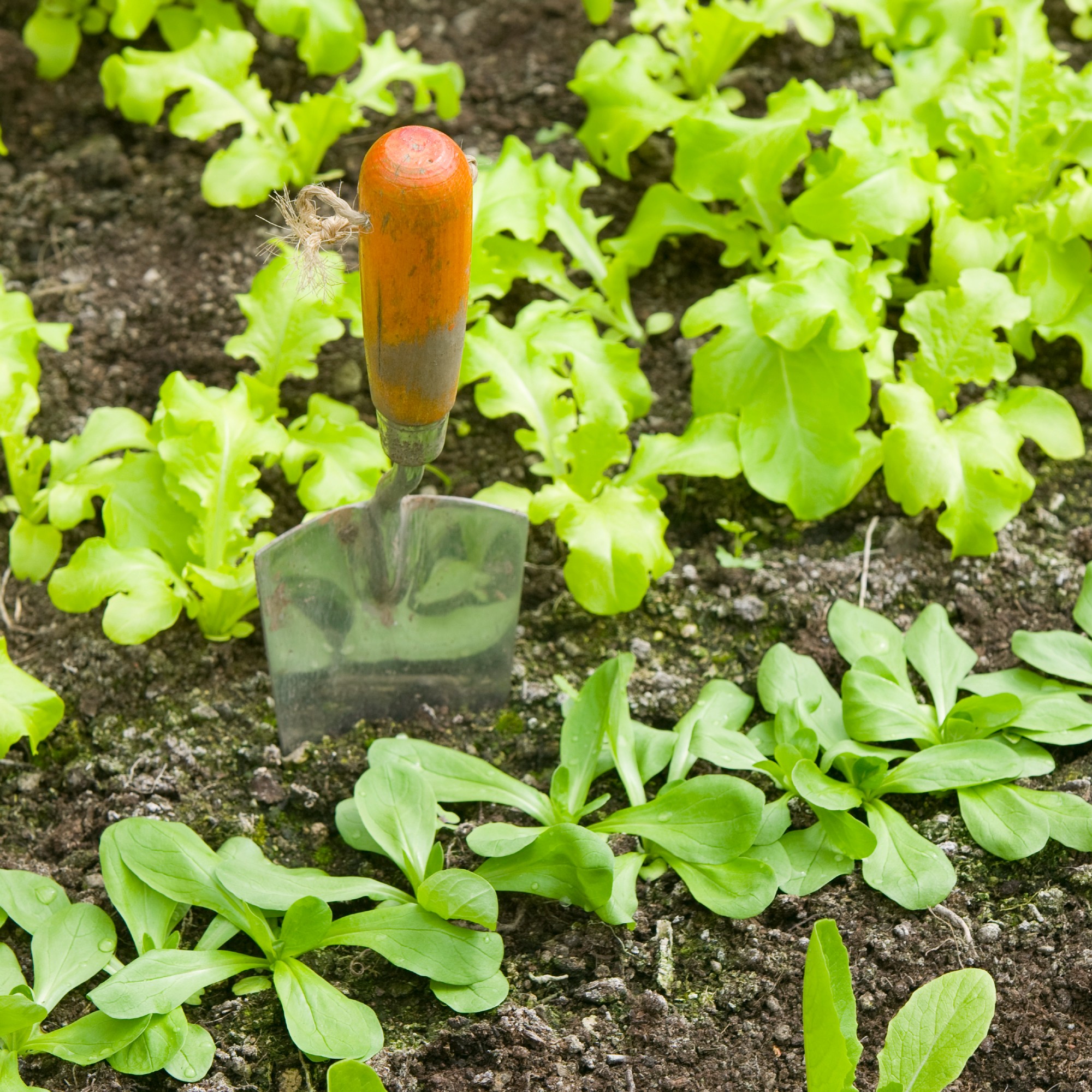
7. Make use of a garlic collusion
Garlic is actually a really great snail deterrent. So, if you're already growing garlic in your garden or even growing garlic in pots from the convenience of an empty windowsill, here's a nifty way to get some use out of it.
'To use it for this purpose, mix it with water into a spray bottle where you don't want snails to go. However, when using this method, you should be very careful to not damage the plants themselves because if they have delicate leaves, garlic can burn them very easily,' says Petar.
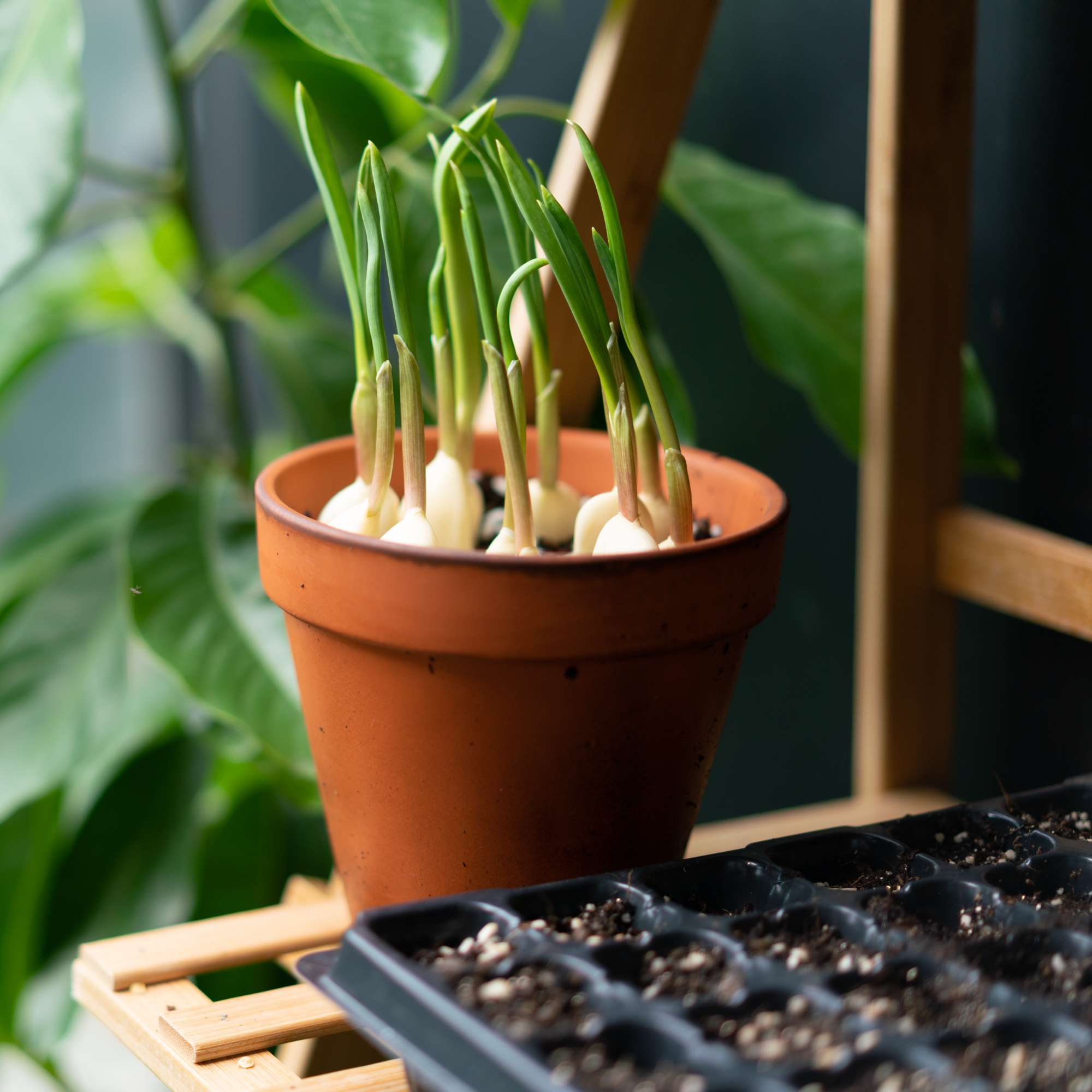
8. Reconsider your watering habits
Lastly, while watering your garden in the evening isn't the worst watering mistake you can make, if you're trying to stop snails from eating your plants then it might be best to reconsider the time of day you choose to water your plants and produce.
'Snails are active at night and need a moist environment to survive, so if you are watering your plants later in the day you are unknowingly creating the ideal environment for them,' cautions Craig.
'Try to water your plants in the morning instead, as the sunlight will dry them out before nighttime when the snails are active, and it is harder for them to navigate dry soil.'

FAQs
What is the best way to stop snails eating plants?
One of the easiest and best ways to stop snails eating plants naturally is to create a barrier, of course.
'Snails dislike rough textures so surround your plants with a barrier of crushed eggshells, coffee grounds, or even sad. These will deter them from reaching your plants,' explains Ryan Fowley, pest control expert at Excel Pest Services.
'Also, beer traps are a classic for a reason – the yeasty scent lures them in, and they drown. Just be sure to replace the beer regularly, especially after rainfall. Another tip would be to try a homemade spray made with watered-down garlic juice. Snails hate the smell, and it's safe for your plants.'
By combining these natural deterrents, you're well on your way to stopping snails in their tracks (literally) and keeping your plants and produce snail-free.

Jullia was Ideal Home’s Junior Writer from 2022-2024 and the Ideal Home Certified Expert in Training on Vacuums having spent over 60 hours testing different models. She’s always loved all things homes and interiors, graduating with a bachelor’s degree in Architectural Studies from the University of Nottingham where her love for writing blossomed following her internship at ArchDaily. Now focused on home tech and cleaning, Jullia works on writing features and explainers to help people make the most of their home appliance investments, putting the newest launches through their paces. When she isn’t writing, she loves exploring the city, coffee shop hopping, and losing hours to a cosy game or book.
